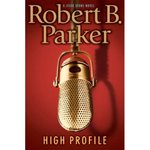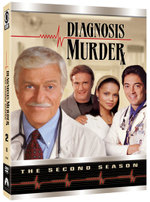Lynne W. Scanlon, the self-proclaimed Publishing Contrarian, urges aspiring authors to get someone to read their manuscripts and offer an honest opinion. That’s very good advice and I’m all for that. I’d even urge authors to join a local writer’s group or take some classes through their university extension program.
But then Scanlon suggests that it’s okay to pay a literary agent or editor to read your book. She uses some awfully faulty logic to back-up her argument.
Everywhere you turn on the Internet publishing pundits scream: NEVER pay a literary agent at a literary agency or an editor at a publishing house to read your manuscript. If they ask for money upfront, they are thieves! You do realize that it is routine for in-house editors to farm out manuscripts to freelance editors to evaluate or edit. You do know that Publishers Weekly pays a stable of reviewers to cough up 250-word reviews routinely, and, in fact, has commissioned reviews for over 100,000 books since 1987. (The Wicked Witch does her homework…sometimes.)
It’s one thing for a publisher or a magazine to hire freelancers to read manuscripts…it’s an entirely different thing to ask an aspiring author to pay to have their work submitted and considered. Legitimate agents make their money from commissions…that’s their incentive for selling your book…NOT from reading fees. Legitimate publishers make their money by publishing, distributing and selling your book….NOT by charging authors for editorial services. And legitimate publishing industry magazines make their money off subscriptions, newsstand sales and advertising…NOT by charging authors to review their books.
So let me underscore the very good advice that she mocks:
NEVER pay a literary agent at a literary agency or an editor at a publishing house to read your manuscript. If they ask for money upfront, they are thieves!
Do I think it’s wrong to ever pay someone to read your manuscript? No, of course not. It’s only wrong if it’s a literary agent or publisher asking you for it.
There are lots of freelance editors, some with very impressive credentials, offering to criticize manuscripts. Whether or not you should hire one depends on lots of things. Are you having difficulty getting the manuscript the way you want it? Is it consistently getting rejections from publishers? etc.
If you decide to pay someone to read your book, do your homework first. Does the editor have real experience? Is he any more knowledgeable than your gardener or your Aunt Betty? Is the fee they are asking reasonable? What specific services will you be getting for the money? Be sure to ask for a list of their previous clients and give them a call. Were they happy with the advice they got? Did their books get published?
Some of those freelance editors have been very helpful to authors. But I know an author who spent thousands of dollars to have a very well-known, former editor read his book…and all he got for his money was his typos & miss-spellings corrected. Buyer beware.
In my opinion, you are much, much better off spending the money on a creative writing course, where you will benefit from the teacher, the students, and the experience of reading and critiquing the other students’ work. You will also have a real motivation to churn out pages every week. Not only will you be getting honest feedback…you will also be learning new skills. It’s money well spent (assuming the teacher is good, of course).
You can even go the "free" route and join a writers group. There’s bound to be one at your local Barnes & Noble. I know several authors and screenwriters who have been part of groups like this and have gone on to great success (Edgar winner Theresa Schwegel comes to mind).
Scanlon goes on to suggest that you could offer a professional book critic a couple of hundred dollars to give your manuscript a thorough read and write an honest, unflinching 500-700 word review for you. This wouldn’t be a review for publication…it would be a reality check. Is your book any good? If not, why? She writes:
I made a few phone calls and fired off a few emails to very qualified publishing and writing professionals, including Frank Wilson, blogger and book critic for the Philadelphia Inquirer, who described book reviewers as a “dying breed” because of disappearing outlets in which to ply their trade. He and other reviewers confirmed that if you offer a reviewer $300, in all likelihood that reviewer will jump through a hoop of fire to get the job.
I asked a few critics I know how they’d feel about an offer like that and the response was mixed. A few would consider it, others were offended by the suggestion. No one that I contacted was willing to "jump through a hoop of fire" to do it. And it could pose ethical problems for the critic with some publications and, perhaps, later if the manuscript is published and the book assigned to them for review.
Even so, it’s a very interesting idea and is an option worth considering for aspiring authors. But, again, do you homework. Read the critic’s work AND the books he’s reviewed. Do you agree with his opinions? Is the critic knowledgeable and respected? Does he have a thorough understanding of structure, character and dialogue as well as the requirements of your particular genre?





